Home health care has never been more in demand. People want the comfort and flexibility of receiving medical attention at home, and home health agencies are racing to meet these needs.
However, as the number of patients grows, managing care efficiently becomes a significant challenge. Between handling paperwork, scheduling, billing, and compliance, it’s easy for things to fall through the cracks.
Fortunately, advancements in technology are providing home health businesses with much-needed support. By adopting digital tools, agencies can streamline their processes and focus more on delivering high-quality care. If you are in the home health field, learning how technology can improve your operations might just be the key to staying competitive.
That’s exactly what we will explore in this article. So, let’s find out!
Why Digital Solutions Are the Future
The traditional way of managing home health services is becoming outdated. More agencies are adopting digital tools to streamline operations and meet the growing complexity of their work. There are several reasons why they are shifting to technology for day-to-day work.
Rising patient numbers: The aging population is leading to higher demand for at-home care.
Regulatory pressures: Agencies need to stay compliant with evolving healthcare regulations.
Efficiency demands: Manual processes are slow and prone to errors, impacting both care quality and business growth.
One of the most effective tools in this shift is home health software. Such software allows agencies to manage patient records, schedules, billing, and more in one platform. This helps reduce manual tasks and keeps operations running smoothly.
Key Benefits of Home Health Software
Home health software is not just about managing day-to-day operations; it can be a powerful tool for growth. Here are some key benefits:
Improved coordination: Caregivers can easily access patient data, schedules, and updates, leading to better care.
Regulatory compliance: These systems help agencies stay compliant with industry regulations by automating paperwork and audit processes.
Time savings: Automating administrative tasks allows caregivers to focus more on patients, improving service quality.
Data accessibility: Staff can access important patient information from anywhere, making it easier to provide care across multiple locations.
By adopting these tools, home health agencies can improve their service delivery while reducing errors and inefficiencies.
The Role of Automation in Home Health
Automation is transforming the way home health agencies operate. By taking over repetitive tasks, automation frees up your team to focus on more valuable activities, such as patient care and strategic business decisions.
Here’s how automation can benefit your agency
Efficient scheduling: Automated scheduling ensures that patient visits and caregiver assignments are well-coordinated.
Billing and claims management: Automation tools streamline billing, reducing the risk of errors and delays in payments.
Medication reminders: Automated reminders ensure that patients take their medications on time, improving treatment outcomes.
Automation minimizes manual work and helps reduce the risk of human error. As a result, your agency can operate more smoothly while delivering better care to patients.
Telehealth and Remote Monitoring: Expanding Your Reach
Another important technological advancement is the use of telehealth and remote monitoring systems. These tools allow home health providers to offer more flexible and accessible care to patients.
Telehealth: Patients can have virtual consultations with healthcare providers without leaving their homes. This is particularly useful for those with limited mobility or chronic conditions.
Remote monitoring: Wearable devices can track vital signs and other health metrics in real-time, allowing caregivers to respond quickly to any changes in a patient’s condition.
The integration of these tools with home health software enables seamless communication between caregivers and patients. This improves the quality of care and allows agencies to handle more patients without compromising service.
How Technology Can Drive Business Growth
Embracing technology is crucial for the long-term growth of any home health agency. Here’s how leveraging the right tools can help you scale your business.
Streamlined operations: With automation and software solutions, you can reduce administrative costs and improve efficiency.
Improved patient care: Access to real-time patient data and remote monitoring tools allows you to deliver personalized care, leading to better outcomes.
Better patient satisfaction: When patients receive timely, high-quality care, they are more likely to stay with your agency and recommend it to others.
Cost savings: By reducing errors and automating processes, you can cut operational costs and reinvest those savings into growing your business.
These factors combined make technology a crucial component of business growth in the home health industry.
Steps to Adopt Technology in Home Health
If you are ready to embrace technology for your home health agency, there are certain things that you need to align to make sure the road becomes easy and simple to get started.
Assess your needs: Identify areas where technology can improve your operations, such as scheduling, patient management, or billing.
Choose the right tools: Select home health software that fits your agency’s needs, ensuring it offers features like automation, compliance management, and remote monitoring.
Train your staff: Ensure your caregivers and administrative staff are trained to use the new technology effectively.
Monitor progress: Regularly assess the technology’s impact on your operations and patient outcomes, making necessary adjustments.
Wrapping It Up
The future of home health lies in embracing technology. These tools, from home health software to automation and telehealth, are essential for improving patient care. By adopting these technologies now, you are not only staying ahead of industry trends but also setting your business up for long-term success. In an increasingly competitive market, leveraging the right tools will help you meet patient needs more effectively, grow your business, and ensure your place as a leader in home health care.


